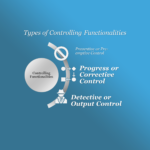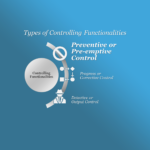Staffing Management
At the function of staffing, efforts are employed for selecting qualified individuals to fill the job vacancies in the organization at different levels of work through the Staffing Management & Main 7 Steps. After selection and recruitment of the selected human resources, the processes of training, following up, and controlling their performance through the implementation of tasks and activities.
Staffing is getting the right person in the right place… and in this article we are highlighting the importance of staffing function and its 7 Steps must pass through

Importance of Staffing
- Staffing has the task of selecting a qualified workforce to fill the various jobs of the organization
- The staffing process is responsible for the quality of HR performance and productivity of the organization for putting the right person in the right job is done at this stage
- It predicts future requirements of employees for the organization
- Ensures the continuity and growth of the organization by applying the best strategies of promotions and transfers for managers, executives, and employees
- The staffing stage is the stage of training and development and ensuring satisfaction and motivation for employees
- The optimal use of human resources in the organization is achieved at this stage
- Staffing determines the requirements of employees resulting from transfer, retirement, or replacement
Staffing Management & Main 7 Steps must pass through
- Human Resource Planning: It is the process of predicting the needed workforce, in terms of efficiency, specialization and number.
- Recruitment: recruiters are responsible for connecting with applicants at this step for identifying, attracting and interviewing in order to provide reports for the next step …
- Selecting: the best among the candidates are selected, regarding their qualifications in line with the requirements of vacant jobs of the organization.
- Placement: It is to allocate every selected candidate, actullay every employee, to an appropriate position, task or responsibility.
- Orientation & Induction: employees are provided with the needed data to begin activating their functions, each in their position. Newly joined employees are also integrated with the other work colleagues.
- Training and Development: new employees receive training courses to develop their skills at work, and the process of training and development continues as long as there are new updates in the labor market.
- Performance Evaluation: It is a logical evaluation process for the performance of employees in the organization, this process it is carried out according to predetermined standards and values that are agreed in the stage of planning
- Career Management: a series of stages an employee passes through in order to understand and realize the skills and knowledge needed to be acquired to remain effective in their position.









